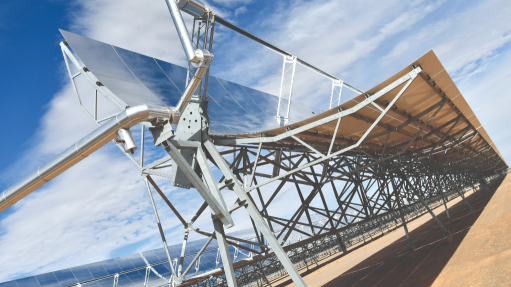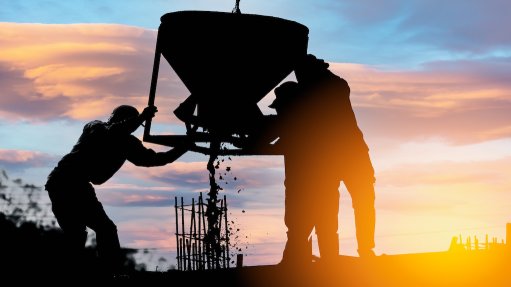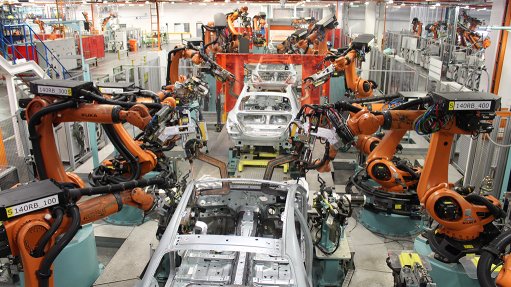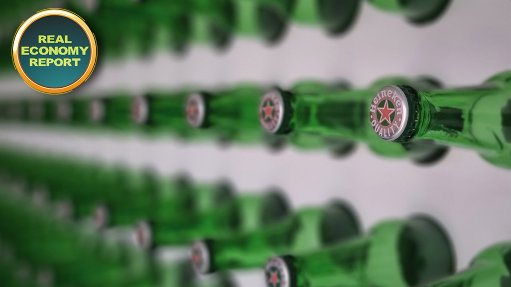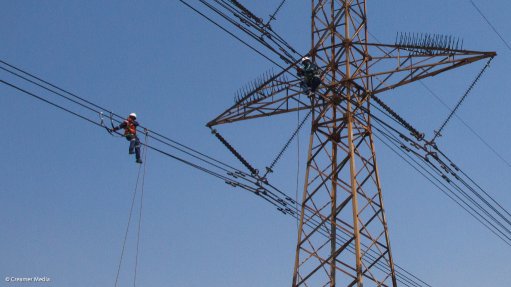Rethinking water:From crisis to resource recovery
This article has been supplied and will be available for a limited time only on this website.
By: Dr. Palesa Diale, Ph.D - Research Engineer at Nafasi Water
It is widely reported that various regions of the world are experiencing a water crisis, highlighting that people remain largely unaware of the complexities of water-society relations.
Take for instance, nearly a decade ago, a headline read: “NASA confirms evidence that liquid water flows on Mars.” The article went further to confirm that researchers detected signatures of hydrated minerals on slopes where mysterious dark streaks were seen on the red planet. This meant that salt water could be found on Mars’s surface during warmer months of the year.
The discovery of water on the surface of Mars has been one of the most significant achievements for astrophysicists in their quest to understand the peculiarities of our solar system. Water has been used to assess the potential for life. More than anything, this confirms that water is the most essential element for life.
Then, there is the continuing issue of climate change, which manifests itself in societies through drought, flooding, and the water pollution crisis. As a case in point, global freshwater demand is predicted to exceed supply by 40% by 2030. The projected 40% gap isn’t just a supply issue; it is also a systemic risk to economies, societies, the environment, and geopolitics.
Consequently, there is a need to rethink our approach to water and to realign social science and historical research concerning it. The historian of water and prominent expert, Professor Terje Tvedt, advocates for a transformation that acknowledges the crucial role water plays in societal development. Tvedt argues that the water cycle should now be understood as a product of both nature and society, arising from the hydrological and hydro-social cycles. The hydro-social cycle is defined as a process through which water and society mutually influence and reshape one another across various spatial and temporal scales.
Water can be seen as the fundamental driving force behind all that humans have done, do, and will do for survival. It has not only facilitated the formation of societies but has also played a crucial role in both early and contemporary industrialisation. Factors such as population growth, evolving economic and social activities, and technological advancements have placed greater and more complex demands on water.
It is therefore imperative to establish sustainable water supplies and restore healthy waterscapes, since the current water crises mirror an ineffective development path. In light of this, building hydro-social water supply resilience through water reuse can play a critical role in ensuring a consistent water supply, which can mitigate the water crisis.
Modern wastewater reuse began in the early 20th century with organised water recycling systems. One of the earliest documented instances is the 1926 wastewater reclamation system in California, which was intended for agricultural use. Significant advancements were observed in the 1960s and 1970s with the emergence of indirect potable reuse and industrial applications.
In the modern age, wastewater reuse has the potential to provide a structured approach to maximising water and resource recovery, viewing wastewater no longer as waste but as a valuable resource. Its effective implementation relies on the integration of six pillars: (i) source control, (ii) advanced treatment, (iii) fit-for-purpose applications, (iv) resource recovery, (v) regulatory compliance, and (vi) public engagement. Advanced treatment and strategies will be crucial if wastewater reuse is to effectively address the global water crisis.
Wastewater reuse typically involves partial recovery, wherein treated water is repurposed for irrigation, industrial processes, or even potable applications. Advanced strategies such as zero liquid discharge (ZLD) take this a step further by ensuring up to 100% water recovery, leaving only solid residues – such as salts, metals, or sludge – for further processing. Industries, including power generation, textiles, pharmaceuticals, and mining, can adopt ZLD to comply with stringent regulations. Rather than discharging wastewater, they can reuse it internally and recover valuable byproducts like salts, minerals, and energy in addition to water.
It may be too late to avert the imminent water crisis; however, the path towards developing effective and sustainable solutions for managing it can still be paved. A paradigm shift from wastewater disposal to resource recovery will help overcome dualistic views that separate water from society by employing ZLD systems for wastewater reuse. This effort should be anchored in innovation, investment, and urgent policy shifts. Therefore, the call is to invest in water reuse and resource recovery for a resilient and secure water future.
Comments
Press Office
Announcements
What's On
Subscribe to improve your user experience...
Option 1 (equivalent of R125 a month):
Receive a weekly copy of Creamer Media's Engineering News & Mining Weekly magazine
(print copy for those in South Africa and e-magazine for those outside of South Africa)
Receive daily email newsletters
Access to full search results
Access archive of magazine back copies
Access to Projects in Progress
Access to ONE Research Report of your choice in PDF format
Option 2 (equivalent of R375 a month):
All benefits from Option 1
PLUS
Access to Creamer Media's Research Channel Africa for ALL Research Reports, in PDF format, on various industrial and mining sectors
including Electricity; Water; Energy Transition; Hydrogen; Roads, Rail and Ports; Coal; Gold; Platinum; Battery Metals; etc.
Already a subscriber?
Forgotten your password?
Receive weekly copy of Creamer Media's Engineering News & Mining Weekly magazine (print copy for those in South Africa and e-magazine for those outside of South Africa)
➕
Recieve daily email newsletters
➕
Access to full search results
➕
Access archive of magazine back copies
➕
Access to Projects in Progress
➕
Access to ONE Research Report of your choice in PDF format
RESEARCH CHANNEL AFRICA
R4500 (equivalent of R375 a month)
SUBSCRIBEAll benefits from Option 1
➕
Access to Creamer Media's Research Channel Africa for ALL Research Reports on various industrial and mining sectors, in PDF format, including on:
Electricity
➕
Water
➕
Energy Transition
➕
Hydrogen
➕
Roads, Rail and Ports
➕
Coal
➕
Gold
➕
Platinum
➕
Battery Metals
➕
etc.
Receive all benefits from Option 1 or Option 2 delivered to numerous people at your company
➕
Multiple User names and Passwords for simultaneous log-ins
➕
Intranet integration access to all in your organisation











